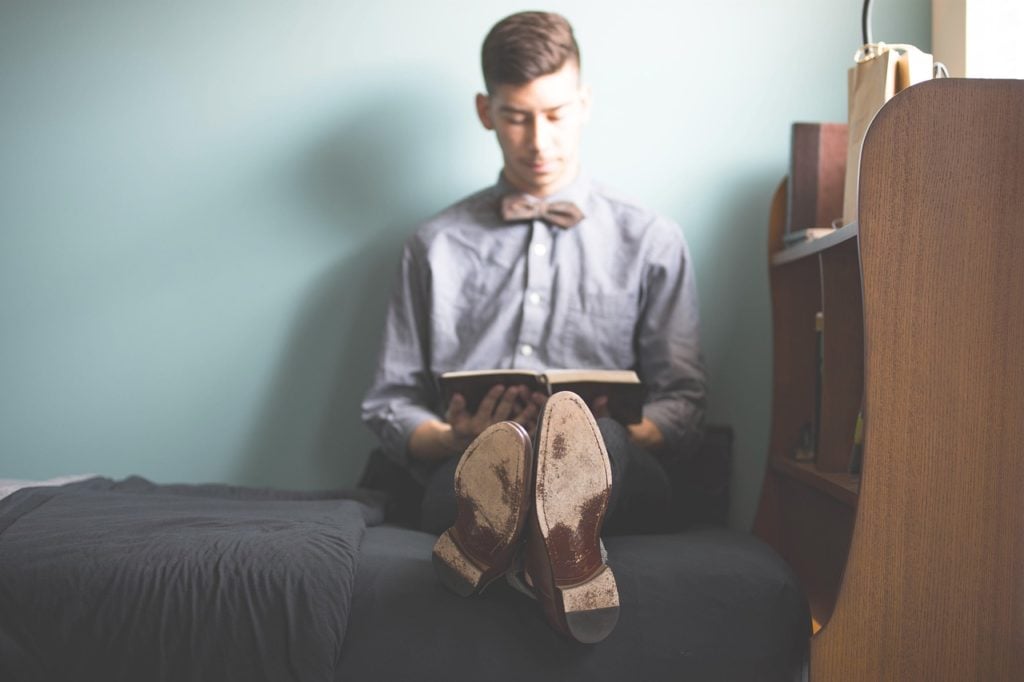
14:01 PM, 15th January 2020, About 5 years ago
Text Size
Whether you are new to the industry or an experienced operator, the issues faced are often similar, particularly when letting to student tenants living away from home for the first time.
Bill-splitting service Glide has created a simple guide that helps outline the responsibilities of landlords – and help ensure you are able to deal with any tenant demand in an appropriate and efficient manner.
Repairs
Although student tenants have a reputation for house parties and late night drinking, that stereotype is perhaps a little outdated.
With the rising cost of student loans and students themselves becoming more money conscious than other generations, ensuring that their deposit is returned to them at the end of term likely a key priority for the majority.
However, as with renting to anyone, wear and tear is to be expected, especially for larger multi-occupancy properties, while any issue with the structure or exterior of the property you are renting out is your responsibility to maintain. Issues relating to flooring, walls and any sanitaryware, such as toilets, sinks or baths, must also be resolved by you if they break.
However, items brought into the property by the tenant are their responsibility to maintain. It’s not the landlord’s responsibility to pay for the repairs on items like TVs which were provided by the occupant.
It is important to remember to take an inventory of the property before tenants begin their occupancy, in order to enable you to tell the difference between repairs which naturally develop and issues that are caused by tenant neglect. Photos of the premises are useful to have in case of dispute.
Utilities
As a landlord, you are responsible for ensuring that all gas and electric appliances are safe in the property, and a gas safety check is required every year. It is also your duty to install smoke alarms on every floor of the building – and carbon monoxide alarms in every room where a fuel burning appliance is situated.
But while it is down to the landlord to ensure the safety of these features, if appliances provided by the tenant break, or light bulbs need replacing, that’s down to the tenant to replace themselves. It is important to clarify these terms in the lease agreement to avoid any disagreements.
Making sure the boiler works and is regularly serviced to maintain the constant and safe supply of hot water for an occupant is also a non-negotiable. Should a boiler break, or if any leaks in the water supply occur, it is the landlord’s responsibility to get these fixed as soon as possible. It is also worth checking with your tenants how long the property will be empty during the Christmas break – if the boiler is switched off for extended periods during a particularly cold spell, there is a risk that the pipes will freeze, which could lead to central heating issues when tenants return in January.
General upkeep
A landlord must keep the general state of the property to a level which is deemed to be fit for habitation. This essentially means they must be kept clean, tidy and without any health and safety hazards for when the tenant moves in.
From there, it is the occupant who is responsible for the upkeep of the home, including features such as the gardens. However, issues like mould, damp and pests – such as rats – must be resolved by the landlord if they result from general wear and tear.
As the owner, you are entitled to inspect the property as many times as you like, but tenants must be given at least 24 hours written notice advising of your intentions to enter the premises.
Bills and payments
The collection of rent payment is a concern, especially for student tenants, who may not be used to the responsibility of regular payments and arranging bills. However, the stigma around students being irresponsible with money is outdated and not reflective of the current generation.
CPS Homes of Cardiff said that “Students make for reliable, almost guaranteed tenants each year due to the academic cycle. You know that if the current tenants are planning to leave at the end of their tenancy a new group is just around the corner, ready and waiting to move in at the start of the next academic year.
“And contrary to the beliefs of many, they are usually very prompt payers of rent because they’re in receipt of a student loan that they receive termly.
“Having confirmation of this student loan is far stronger than an employment reference because people are far more likely to quit or lose their job than drop out of University.
“If they ever do get into trouble with their rent payments, a parent or guardian will have usually agreed to act as a financial guarantor at the start of the tenancy. This means a landlord can approach said person and demand full payment of the balance owed.”
If you are the landlord of a shared property, it is not up to you to organise the payment of rent and utility bills.
This is the responsibility of the occupants, as the money is ultimately to be paid to you, while any disputes should be settled between tenants.
However, encouraging your tenants to sign up to a bill splitting service takes the headache out of arranging bill payments – each tenant receives a bill for their share of the utilities, meaning no-one is stuck chasing for payments and all potential arguments are negated.
Previous Article
Average claim to repossession order takes 30 weeks in London